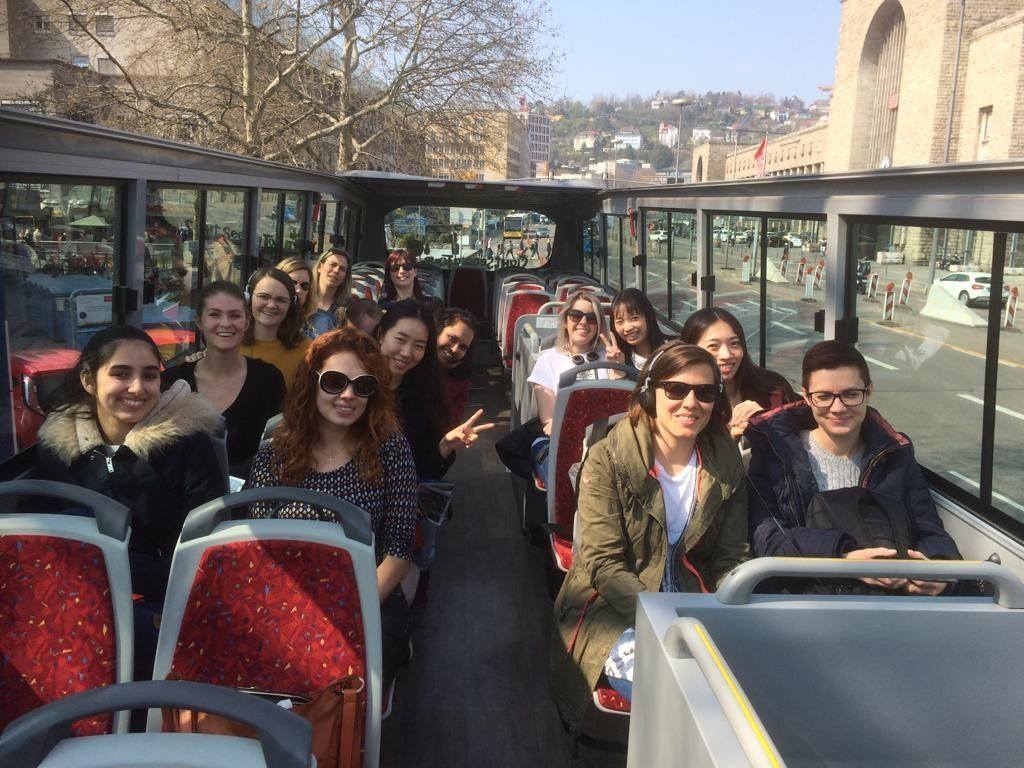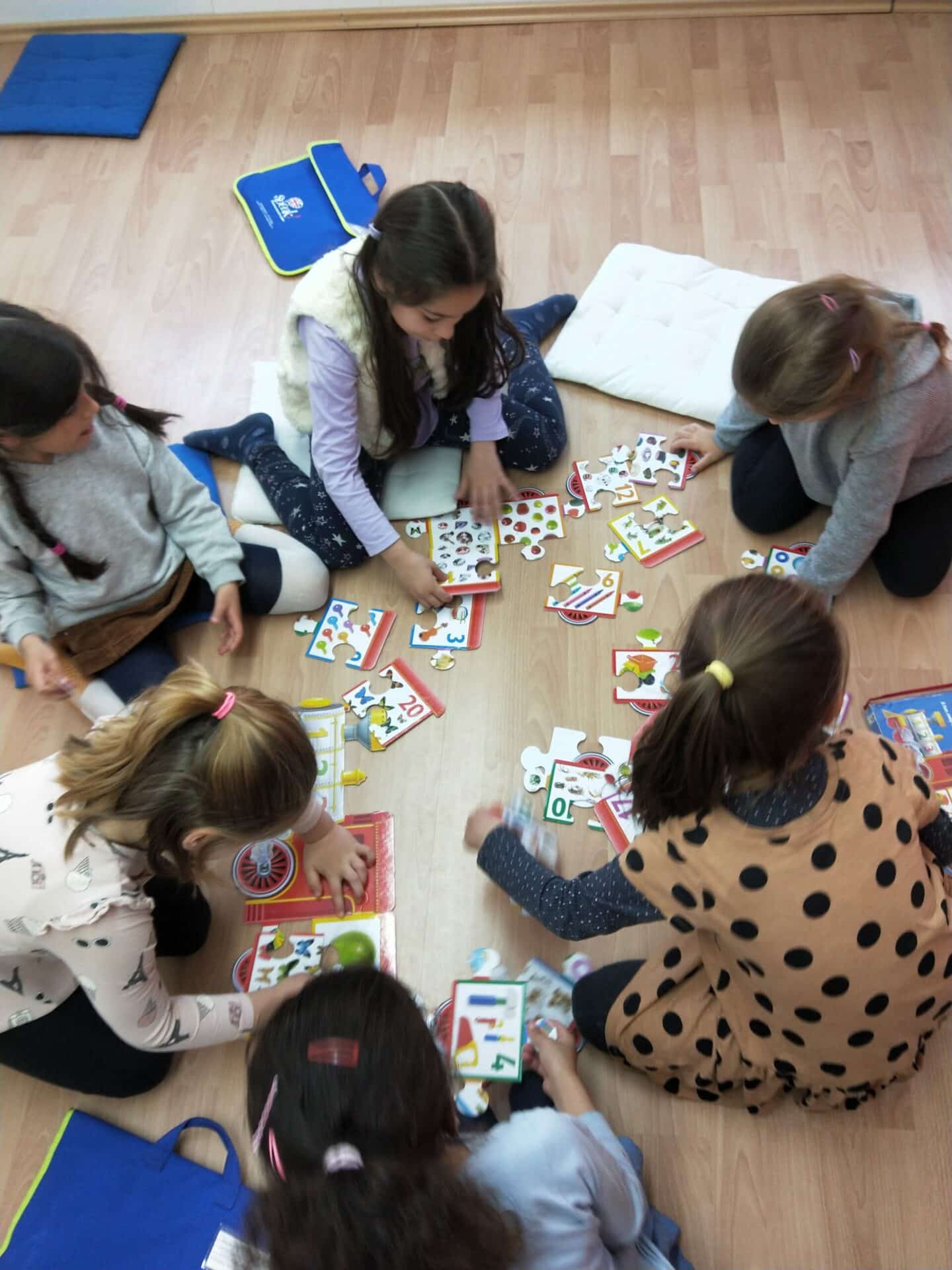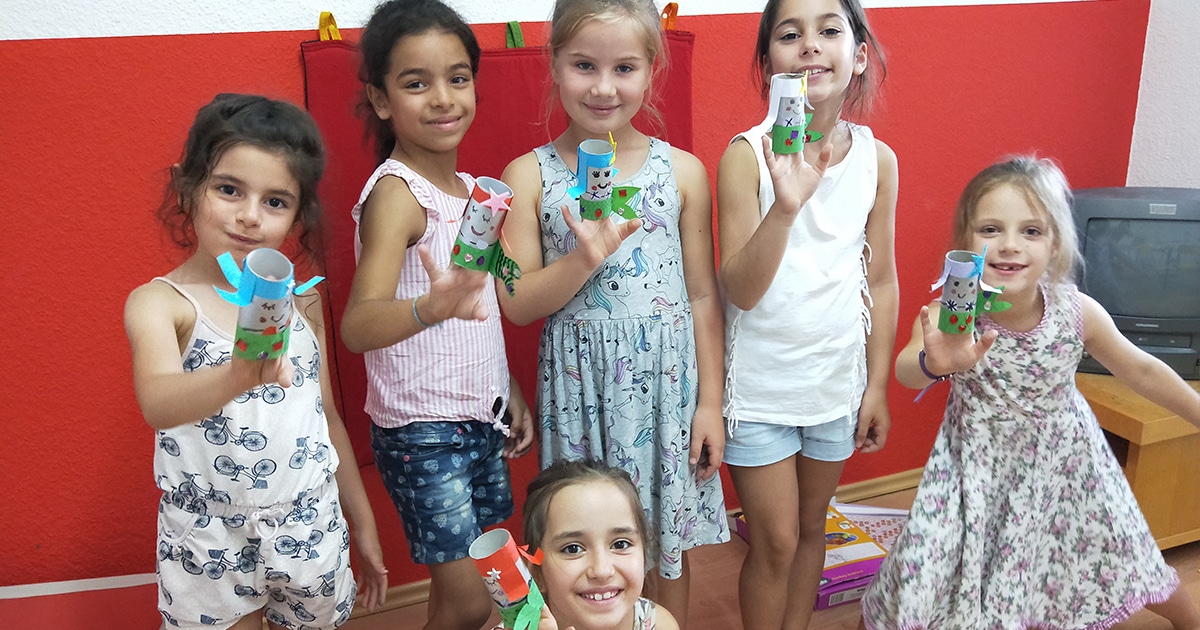Kathryn Barber
Teach Enrich Empower
Five Surprising Things I Learnt as a TEFL Teacher in Germany
I’m Kat, I’m 31,and I’m a TEFL teacher in Stuttgart, Germany. I completed my TEFL certificate with The TEFL Academy in January 2019, and within one month, I was nervously standing in front of my first class of cheeky seven-year-olds.
I moved to Germany from Australia with my husband (and my dog) in late 2018, when my husband was offered a new job here. Leaving behind a great job in marketing and family and friends, I was unsure what I would do in Germany so I decided to take a leap of faith and sign up for a TEFL course.
There is quite a high demand for English teachers in this area, so after emailing and interviewing with two private language schools,I was offered freelance positions and began working immediately with both children and adults.
I worked an average 30-hour week for the first six months, travelling between schools and workplaces and the language centres to teach everyone from three-year-old kindergarten kids, to 50-year-old lawyers practicing for a TOEFL exam.
This semester, I’ve decided to focus on teaching mainly one-on-one with adults at the AngloGerman Institute in Stuttgart, as I really enjoy the sorts of conversations you can get into with adults, as well as helping them with specific on-the-job skills. I’m also going to be focusing on my other passion for writing, and I’m launching a blog about expat life.
“I was unsure what I would do in Germany so I decided to take a leap of faith and sign up for a TEFL course.”
I would have never been able to get this job without completing my TEFL certificate, and I’ve since encouraged other expats here to pursue theirs as it’s a great way to meet locals and find a sense of purpose in a new city. Through teaching I’ve discovered new neighborhoods, learnt about great places to travel, seen how German schools operate, and of course, made friends! I’ve been able to unleash my creativity, learn a new skill, earn great money, and improve my overall language skills.
If fact, here are five surprising things I learnt since starting teaching in Germany:
1.You actually learn a lot of German on the job.
While obviously I was there to teach English, and I only spoke English 99% of the time in my class, there were many times that I inadvertantly learned words, especially from children.
They might say “Spitzer please” when holding up their broken pencil. And while I’d use it as an opportunity to teach the word ‘sharpener’ as I handed it over, I also just learned the word Spitzer.
2.Confidence is key.
Both for you and for your students, confidence is so important! If you walk into a classroom feeling nervous or unprepared, your students will notice and rip you to shreds. It’s important to always be prepared, and always have a few easy time fillers such as Hangman up your sleeve, and that will help you feel much more confident in what you are teaching. Another tip: always try to stay one lesson ahead of your students!
And for your students, especially adults, what they often lack is confidence. More often than not, I found my students’ English skills were amazing, but they didn’t see it that way. One piece of advice is to provide more speaking opportunities where they have the chance to formulate long sentences and develop theories and arguments, and then they’ll realize just how well they can actually communicate. And don’t correct every mistake, focus on the main ones, or ones related to topics you’ve just learned.
3.Use the resources available.
There are so many incredible resources out there that time spent planning a lesson doesn’t have to be too time-consuming. In both schools I worked at, I was not paid for preparation time, so it’s in your best interests to plan your lessons efficiently. Some of my favourite sites for free resources are ESLbrains.com, busyteacher.org, BritishCouncil.org.uk and islcollective.com but there are countless others out there.
4.Learning a language is a requirement, not an elective.
In Australia, and probably many other English speaking countries, the emphasis on learning a language is more for ticking a box, rather than to attain fluency. But from my experience, in Germany they learn languages to become fluent and improve their job prospects later in life, not to tick a box. So it was not surprising to meet children of six or seven years old who were already fluent in three languages.
5.I really didn’t know English.
By that I mean, I’m fluent in English, I’m pretty good at spelling, I love to read, but I really didn’t know the ins and outs of English grammar. Once, in an advanced English class, I was marking a student’s work, and corrected “I haven’t seen him last year” to “I didn’t see him last year”, only to get asked, but why?
Of course, I couldn’t reply, that’s just the way it is. So I went away and researched it and came back the next week with plenty of exercises on the differences.
Do you know the reason why?
Hint: We are talking about a time period that has ended, so we need to use the simple past tense.


Find your campus!
Choose to learn at one of our global TEFL campuses
The TEFL Academy has over 70 TEFL courses running every month in locations throughout the world.
Our combined TEFL course will give you the qualification you need to become a confident teacher abroad, wherever you decide to study. Select from the search options below to find the right course location for you.
You need to choose country and city!
Accreditation & Quality Assurance
The TEFL Academy was the world’s first TEFL course provider to receive official recognition from government regulated awarding bodies in both the USA and UK. This means when you graduate you’ll hold a globally recognised Level 3 (120hr) Certificate or Level 5 (168hr) Diploma, meaning you can find work anywhere and apply for jobs immediately.
 United Kingdom
UK
United Kingdom
UK


















